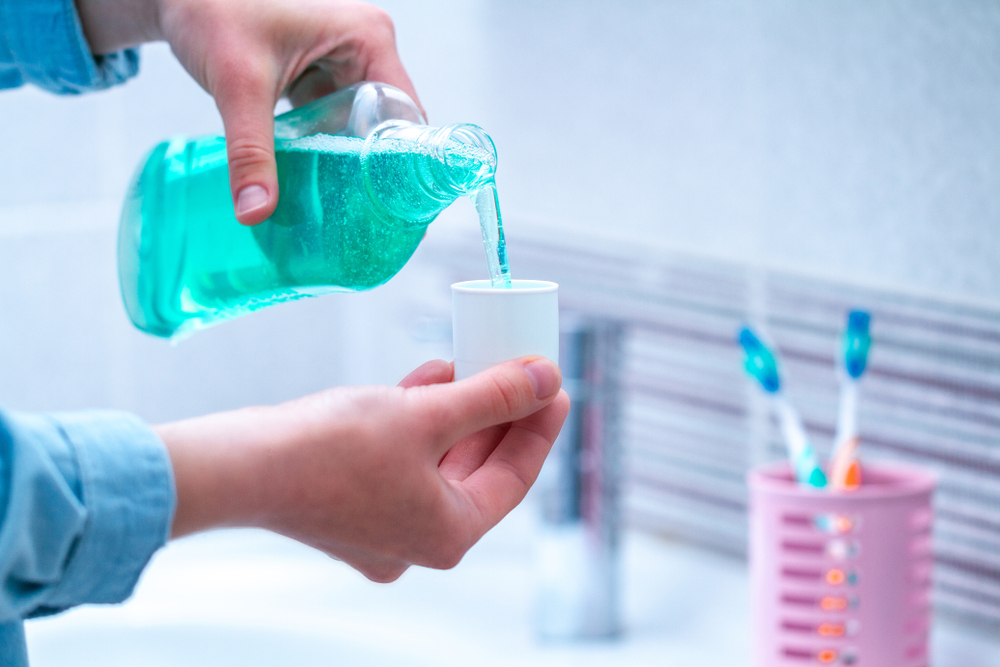Healthy oral bacteria, such as Actinomyces, Neisseria, and Veillonella, play an important role in converting dietary nitrate into nitric oxide (NO). Nitric oxide is essential for blood vessel function and blood pressure regulation. Chlorhexidine (CHX), one of the most widely used antiseptics, is very effective at reducing harmful bacteria, but its prolonged use can also reduce microbial diversity and lower nitrite levels. This alteration can potentially impair nitric oxide production, with possible effects on vascular health, metabolism, and even the immune system.
Other antiseptics, like cetylpyridinium chloride (CPC), essential oils, or povidone-iodine, appear to disturb beneficial bacteria less. However, some essential oils, especially when used undiluted, can irritate oral mucosa and disturb microbial balance. Over time, indiscriminate use of antiseptics may increase the risk of systemic issues, including cardiovascular problems, respiratory infections, and complications during pregnancy, as oral dysbiosis facilitates low-grade inflammation and pathogen translocation.
The review emphasizes that antiseptic use must be individualized. Not everyone benefits from long-term CHX rinses, and some people may even experience harm if the oral microbiome becomes unbalanced. Alternative strategies are gaining attention. Probiotics, for example, can help maintain a healthy microbial community by competing with harmful bacteria, modulating immunity, and producing antimicrobial substances. Prebiotics, postbiotics, and quorum-sensing inhibitors are other promising tools to preserve beneficial bacteria while controlling pathogens.
Personalized oral care, informed by each person’s bacterial profile and systemic risk factors, is likely the future of dentistry. By identifying individuals at risk of dysbiosis or colonization by high-risk bacteria like Porphyromonas gingivalis or Tannerella forsythia, clinicians could tailor antiseptic, probiotic, or host-modulating therapies. Education is also critical: patients should understand that mouthwashes are not magic solutions, and overuse may carry systemic consequences.
Reference
Angjelova, A., Jovanova, E., Polizzi, A., Leonardi, R., Isola, G. Effects of antiseptic formulations on oral microbiota and related systemic diseases: A scoping review. Antibiotics 2025, 14, 815. https://doi.org/10.3390/antibiotics14080815



